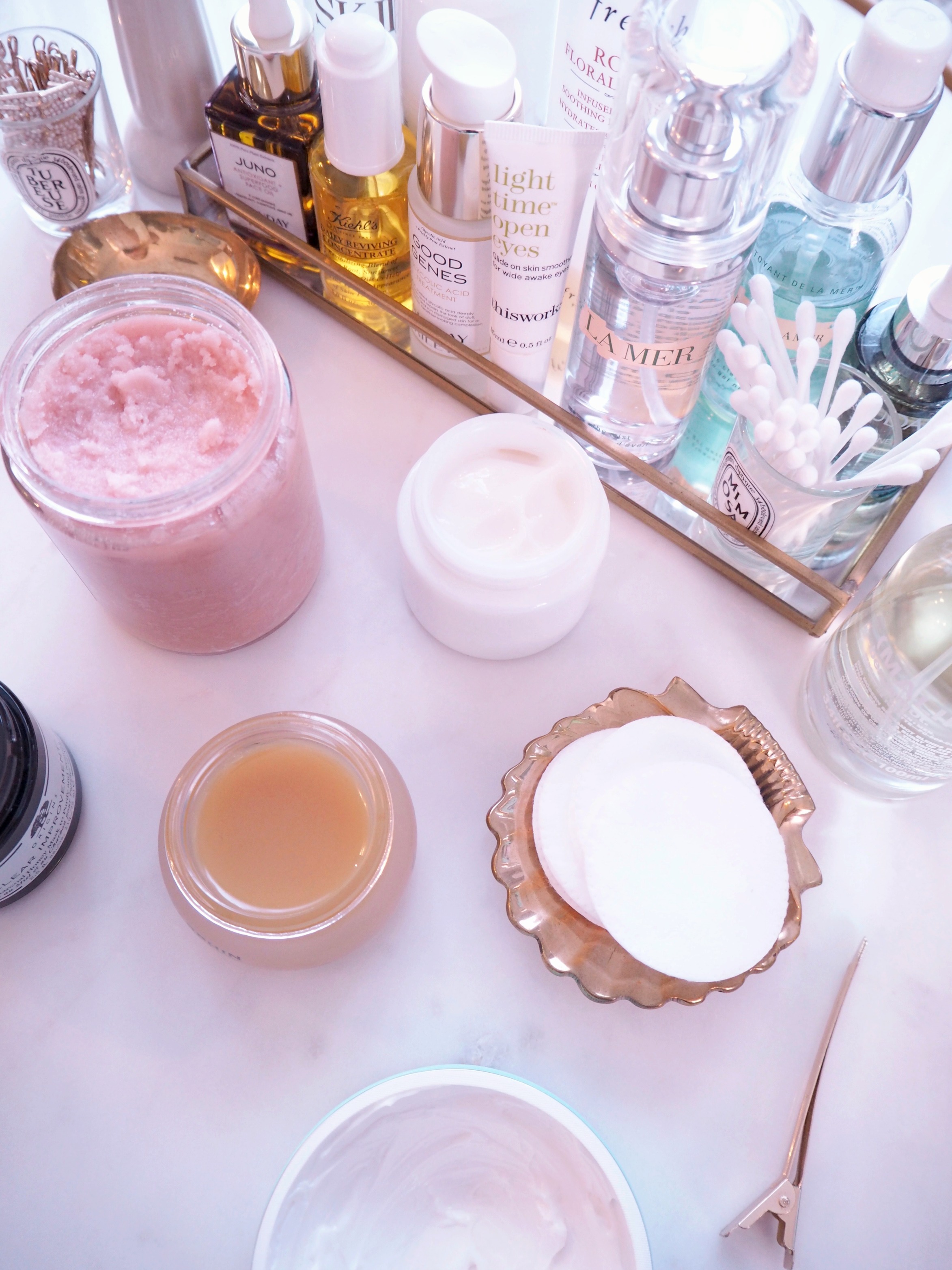
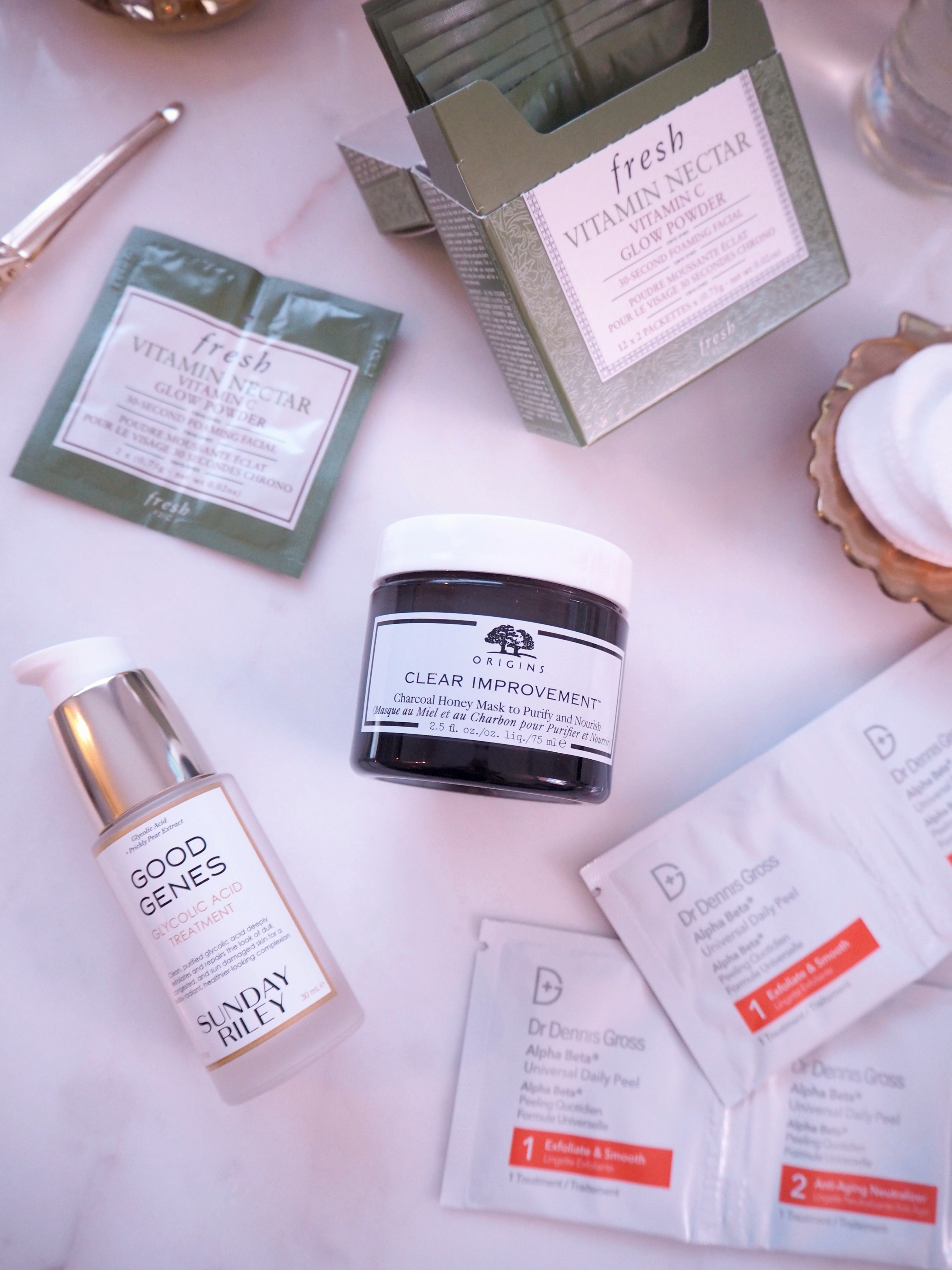 When things are off-balance, it always shows on my face first. The combination of rich Christmas food (too much sugar + processed carbs + champagne), extreme temperature fluctuations (artic winds outside / dry heating indoors), getting out of a sleep routine (when will I learn that 1am is not an acceptable bedtime) and not maintaining my normal healthy routines left my skin in disarray after the holidays. All of which resulted in my skin feeling dry, sensitive, prone to breakouts, and in need of serious intervention.
When things are off-balance, it always shows on my face first. The combination of rich Christmas food (too much sugar + processed carbs + champagne), extreme temperature fluctuations (artic winds outside / dry heating indoors), getting out of a sleep routine (when will I learn that 1am is not an acceptable bedtime) and not maintaining my normal healthy routines left my skin in disarray after the holidays. All of which resulted in my skin feeling dry, sensitive, prone to breakouts, and in need of serious intervention.
Here’s how to reset your skin when you need to pull out the big guns:
For Your Body:
1. Clean up your diet // I don’t know about you, but the Christmas diet really took it’s toll on my skin. This month I’ve been hitting the gym a few times a week (exercise helps to get you circulation going and clear your pores), scaling back on the sugar (my skin’s nemesis), swapped coffee for peppermint tea and coconut milk matcha lattes, and making sure I’m getting at least ten glasses of water and seven serves of vegetables and fruit a day. A face mask won’t fix your skin if you’re eating garbage every day, so start here.
2. Scrub away dry skin // The combination of cold winter temperatures, dry indoor heating, and lack of Vitamin D are an unhappy cocktail. Whenever I’m washing my hair, I’ll put a hair mask in, turn off the water, and then spend a good 5 minutes scrubbing each limb before I turn the water back on again. This one is my favourite (I’m on my third tub) – it is really exfoliating but not painfully scratchy like some, and leaves your skin soft, hydrated, and smelling like coconuts. Scaly skin be gone!
3. Add a rich body cream // Even if – like me – your legs haven’t seen the sun since October, don’t be lazy about moisturising them. As soon as you’re out of the bath or shower, slather on a rich body oil or cream from head to toe. I’ve been using this body cream every evening after the bath and it feels so decadent but is the perfect antidote to dry, itchy winter skin.
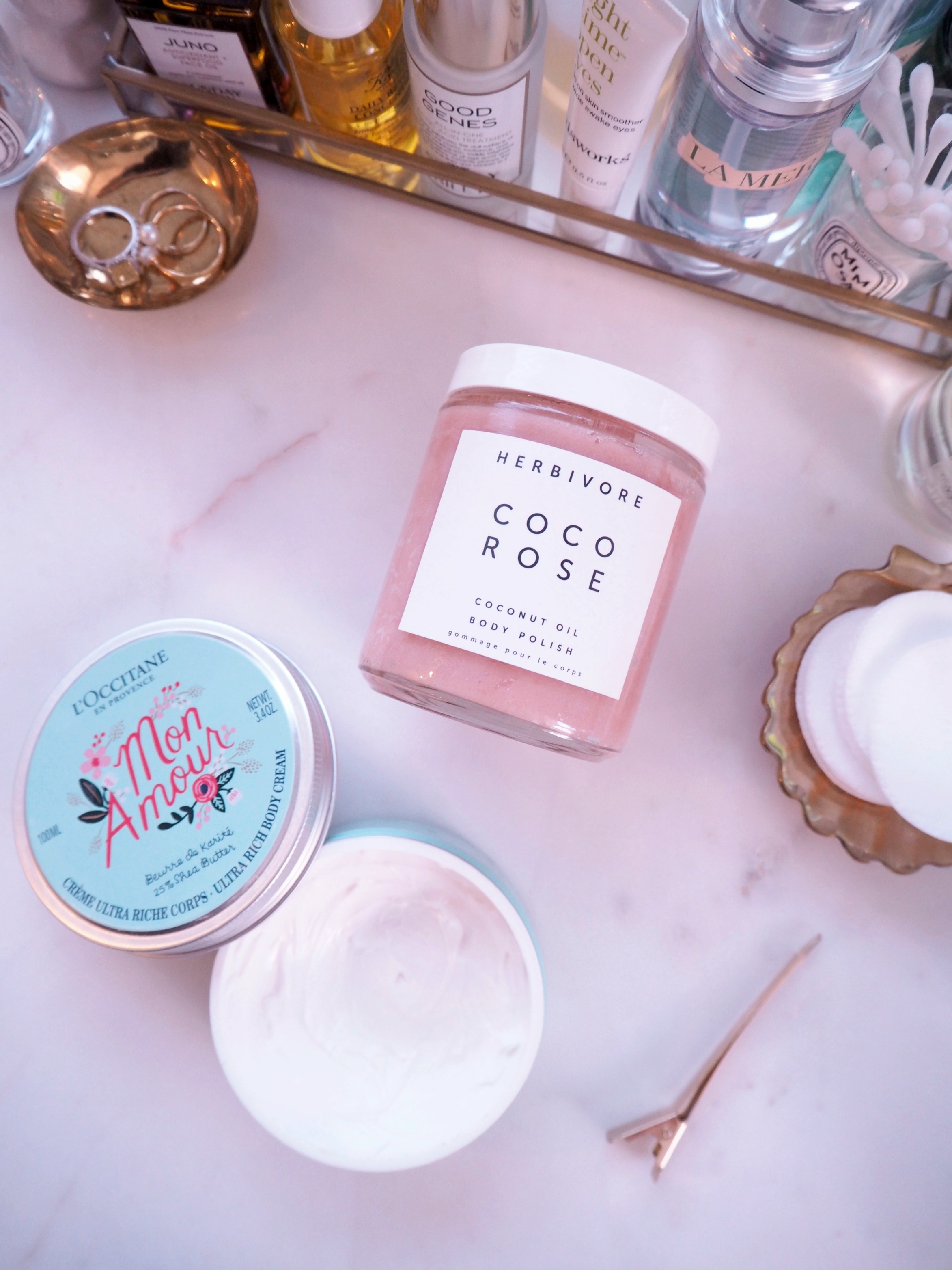
To Treat:
4. Up the exfoliation ante // One of the best things I did for my sensitive skin last year was swap from a physical (scrub) to a chemical (acid) exfoliant. If your skin is sensitive – or just temporarily stressed and out of balance – switching your exfoliator might do the trick. I like to alternate between a salicylic acid toner twice a week to reduce and prevent breakouts, a gentle brightening glycolic acid treatment overnight twice a week, and these gentle peel pads once or twice a week when I need a little more. Note: because acid exfoliators make your skin more prone to sensitivity and sun damage, I only use these at night and then follow with a soothing face oil or treatment.
5. Mask every other day // Normally I’ll just do a face mask once a week on Sundays, but when my skin is playing up, doing a mask 2-3 times a week is one of the best ways to target whichever skin issue is plaguing me. Sometimes it’s about hydration (in which case this one is my favourite), sometimes it’s cleaning clogged pores (this one really does the job), sometimes its exfoliation if I’ve been lazy about using acids during the week (this one is great), but right now it’s targeting breakouts without irritating my skin. This Origins mask is new to me, but I turned to it just before Christmas when I started to get a lot of breakouts for no apparent reason and have been using at least once a week since then. It clears pores and helps get rid of breakouts, but unlike a regular cleansing clay mask, but thanks to the soothing honey it doesn’t irritate sensitive skin or angry breakouts. A godsend for those really bad skin weeks (we all have them).
6. Brighten dull skin // Vitamin C is the perfect antidote to dull winter skin. I’ve been using this Vitamin C face powder one morning a week (you mix it with a little water in your hand and massage it on) and always see a noticeable improvement. You should see immediate results in terms of brightness, but it also works double-duty by helping to repair skin and protect from environmental damage.
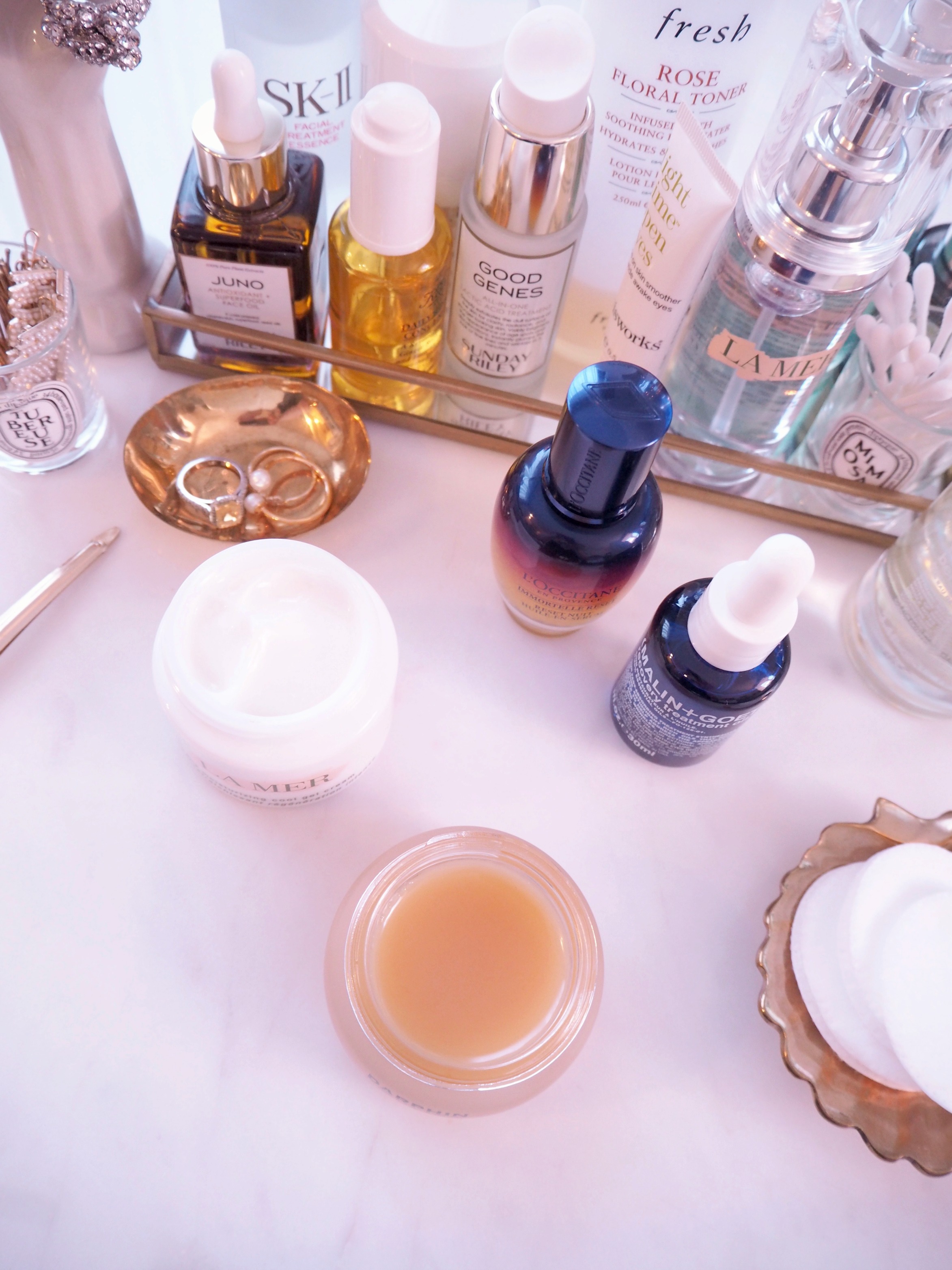
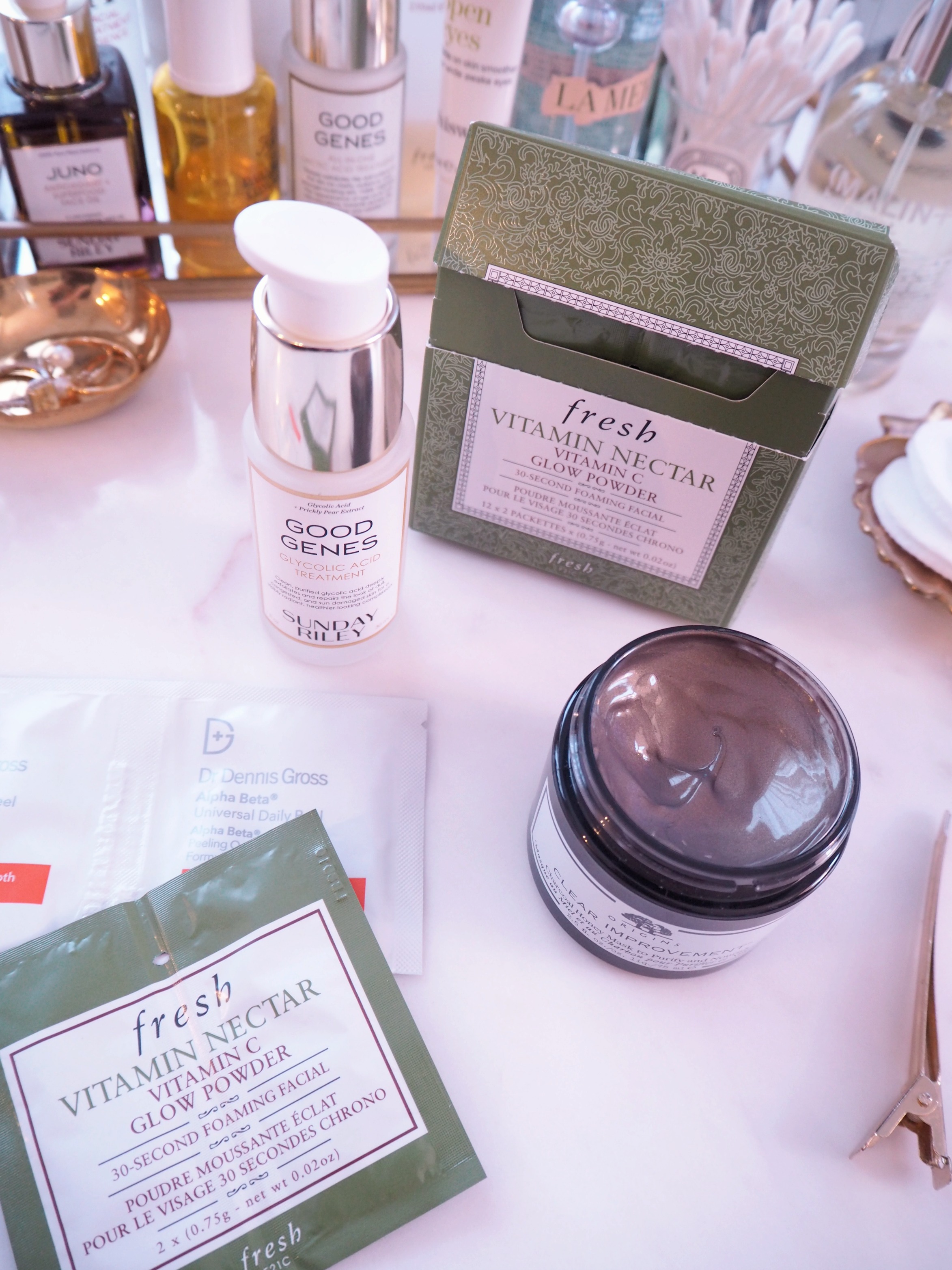
To Nourish:
7. Switch to a cleansing balm or oil // Most gel or foaming cleansers will strip the skin, which is only going to make it more sensitive and dehydrated. Your skin needs a gentler approach in winter, so swap your regular cleanser for a more hydrating balm or oil version. I’ve been using this cleansing balm since I had the most blissful facial of my life at the Darphin Institut in Paris in October, and it is both a treat to use and leaves my skin feeling soft and hydrated rather than stripped and tight.
8. Serum, serum, serum // Due to its molecular structure, a serum is able to penetrate the layers of the epidermis and target skin issues more effectively than a moisturiser, which is designed to sit on top and hydrate and protect the outer layers of the skin. Look for one rich in hydrating ingredients and antioxidants to help prevent skin-ageing environmental damage. I like this one for day and this one for night; I just layer them over my toner/essence and under my face oil/cream.
9. Add a treatment oil at night //For most skin types a face oil is a bit rich for daytime use, but it is the perfect overnight alternative to a regular face cream and will nourish and balance all skin types. Look for one that contains as few ingredients and as high a percentage of organic plant-based oils as possible. This Malin + Goetz version is my current favourite – it’s perfect for repairing acne scars, dull or sensitive skin – but I also love this one by Sunday Riley or this inexpensive rosehip oil.
10. Layer a nourishing cream // Extreme temperature fluctuations (bitterly cold winter air vs dry central heating) and environmental aggressors (SPF, dirt and pollution) take their toll on your skin, so your face cream is the barrier between your skin and the outside world. I like one that is hydrating but not too heavy – if you’re dry or dehydrated, you’re better off layering a good serum and oil underneath vs a single layer of rich cream. I was given this La Mer version and was admittedly reluctant to use it as it’s definitely a splurge, but it is like a tall drink of water for your skin has honestly been saving my winter-parched skin this month.
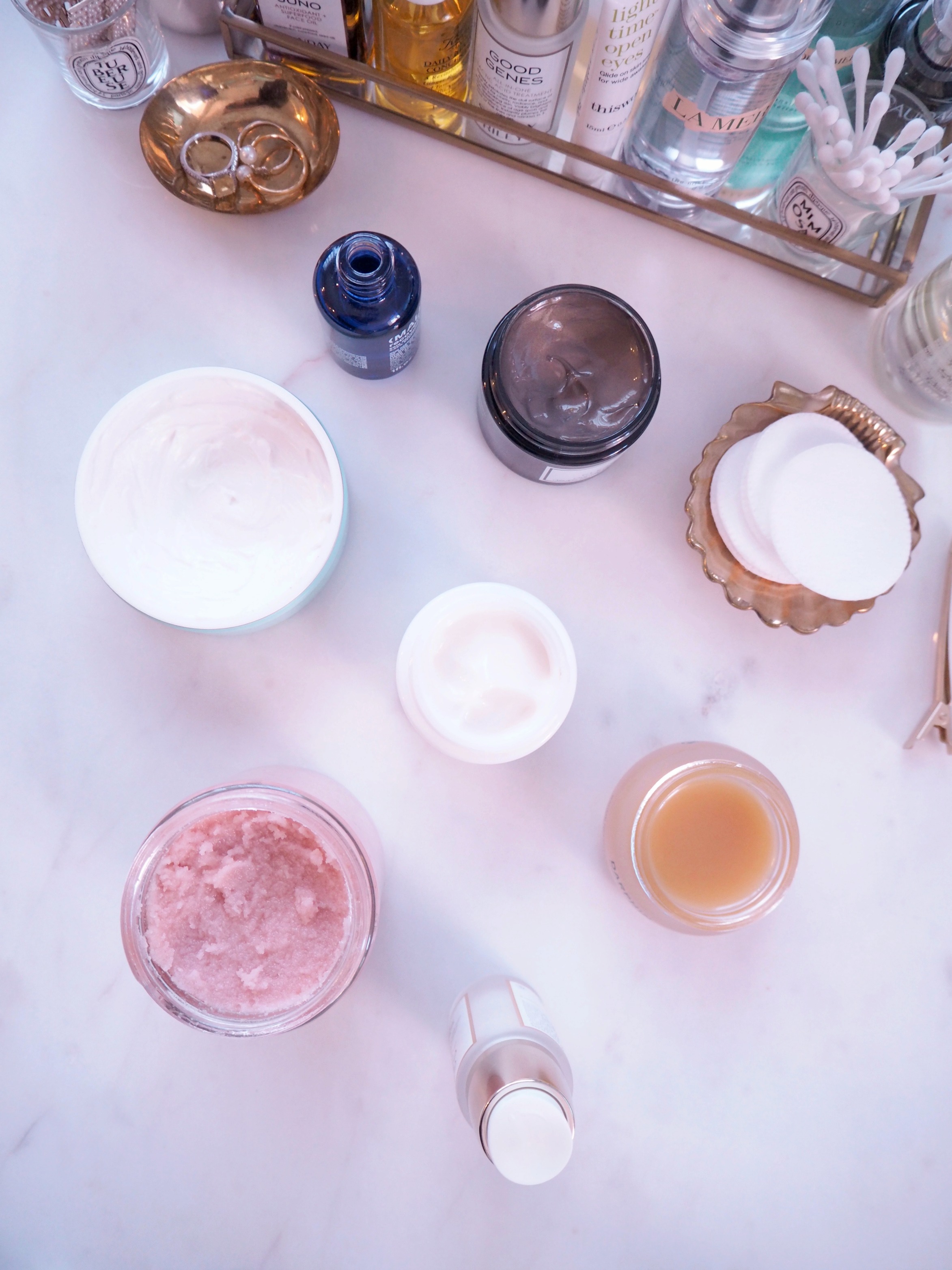
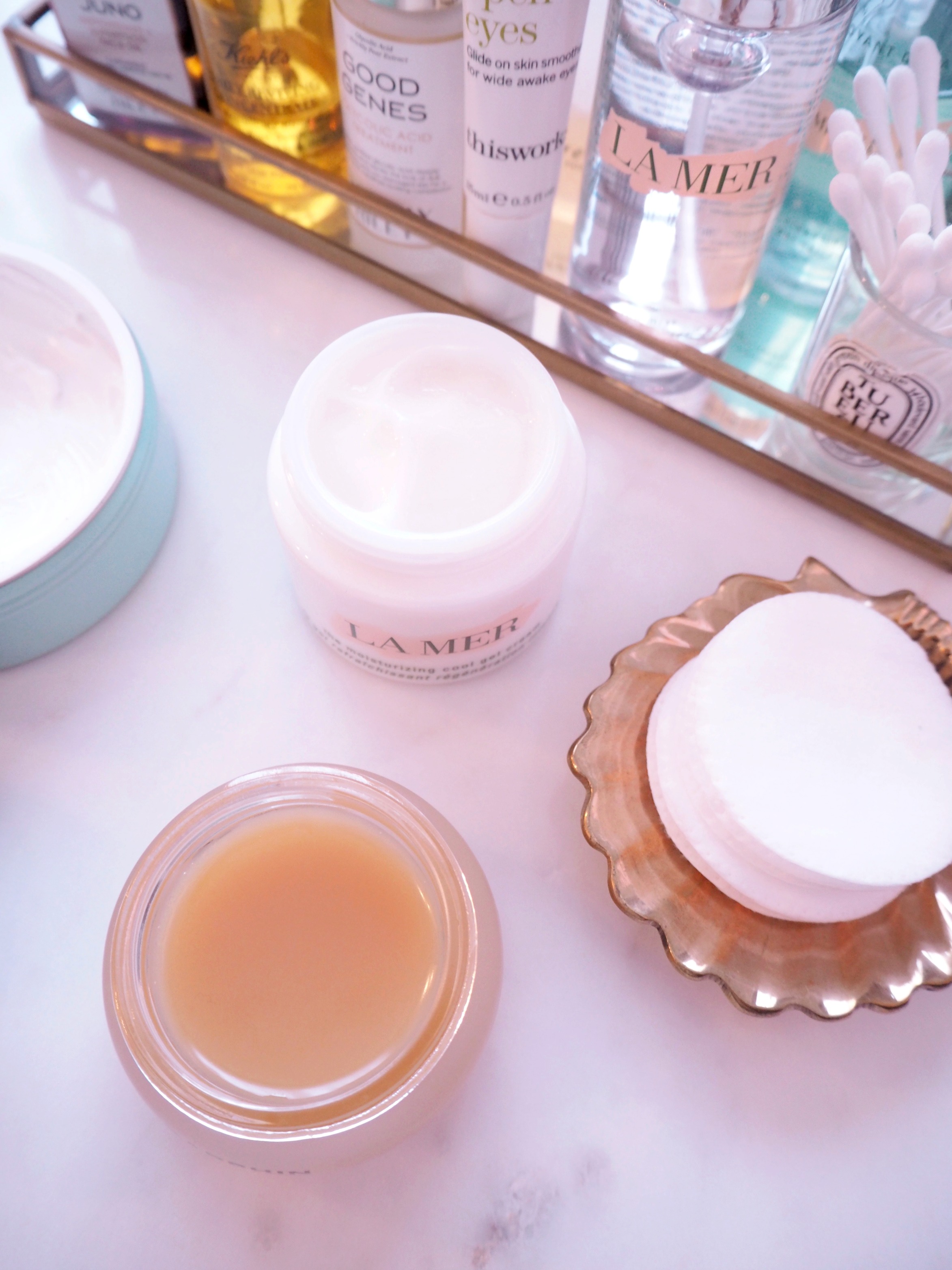 Pictured: Herbivore Body Scrub // L’Occitane Body Cream c/- // Fresh Vitamin C Powder // Dr Dennis Gross Peel Pads c/- // Sunday Riley Good Genes // Origins Mask // Darphin Cleansing Balm // La Mer Moisturiser c/- // L’Occitane Serum // Malin + Goetz Treatment Oil.
Pictured: Herbivore Body Scrub // L’Occitane Body Cream c/- // Fresh Vitamin C Powder // Dr Dennis Gross Peel Pads c/- // Sunday Riley Good Genes // Origins Mask // Darphin Cleansing Balm // La Mer Moisturiser c/- // L’Occitane Serum // Malin + Goetz Treatment Oil.
What works for you when your skin is less than its best? I’d love to know if your favourite products or tricks that help when your skin is out of balance.
Love, Briony xx


So many amazing products! And I hear you about the after holiday skincare sufferings! Anytime I have a significant time off and I overindulge or get lazy with my skincare, I can totally tell a difference. I love your first tip that basically says you have to be mindful of what you are putting in your body because skincare goes way deeper than just products. When I was Whole30 and really focused on eating clean, I could tell the difference and taking care of your skin is just so much more than using the right mask or face wash. I also love your product recommendations. Herbivore packaging just gets me every time. I really need that scrub. And I really want to incorporate an oil into my nighttime routine!
http://www.livelaughlinda.com
Completely agree with everything you’ve said! My skin was having a full-on meltdown by the first week in January, but thankfully it’s (almost) back to normal thanks to implementing all of the above. And I definitely recommend an oil at night; it’s so great for balancing skin. A pure rosehip oil is a great place to start as it’s rich in Vitamin C, really good for hydrating and repairing skin, and inexpensive – but otherwise this Malin + Goetz version has worked wonders on my skin this month (the Origins mask followed by this have completely saved my skin from stubborn breakouts and sensitive skin).
Briony xx